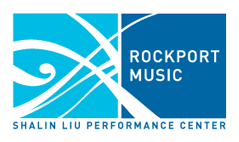World-renowned Brazilian jazz singer Luciana Souza transcends traditional boundaries around musical styles, offering solid roots in jazz, reinterpretations of samba, and an enlightened approach to new music. The Grammy-winning vocalist, who has performed and recorded with musical luminaries like Herbie Hancock, Paul Simon and James Taylor among others, will be making her Shalin Liu Performance Center debut.
Grammy winner Luciana Souza is one of Jazz’s leading singers and interpreters. Born in São Paulo, Brazil, Ms. Souza grew up in a family of Bossa Nova innovators – her father, a singer and songwriter, her mother, a poet and lyricist. Ms. Souza’s work transcends traditional boundaries around musical styles, from jazz to samba to pop to new music. She has been a prominent soloist in important new works by composers Osvaldo Golijov, Derek Bermel, Patrick Zimmerli, Rachel Grimes, Angelica Negron, Shara Nova, Caroline Shaw, and Sarah Kirkland Snider, performing with the New York Philharmonic, the Atlanta Symphony, the Los Angeles Philharmonic, the Los Angeles Chamber Orchestra, the American Composers Orchestra, the Los Angeles Guitar Quartet, and A Far Cry.
Ms. Souza has been releasing celebrated recordings since 2002 – including her six Grammy-nominated records Brazilian Duos, North and South, Duos II, Tide, Duos III, and The Book of Chet. Her critically acclaimed ninth recording for the Sunnyside label, The Book of Longing, presents her settings of poems by Leonard Cohen, Emily Dickinson, Edna St. Vincent Millay, and Christina Rossetti. Ms. Souza began her recording career at age three with a radio commercial. She spent four years on faculty at Berklee College of Music, where she received a Bachelor’s in Jazz Composition. Ms. Souza earned a Master’s degree in Jazz Studies from the New England Conservatory of Music and taught for four years at Manhattan School of Music. Ms. Souza has twice been named Best Female Jazz Singer by the Jazz Journalists Association, in 2005 and 2013.
Note: For some concerts, the window behind the stage may need to be covered for acoustical purposes. We do not always know which artists will need the window closed, but at a certain level of amplification, it is necessary.












